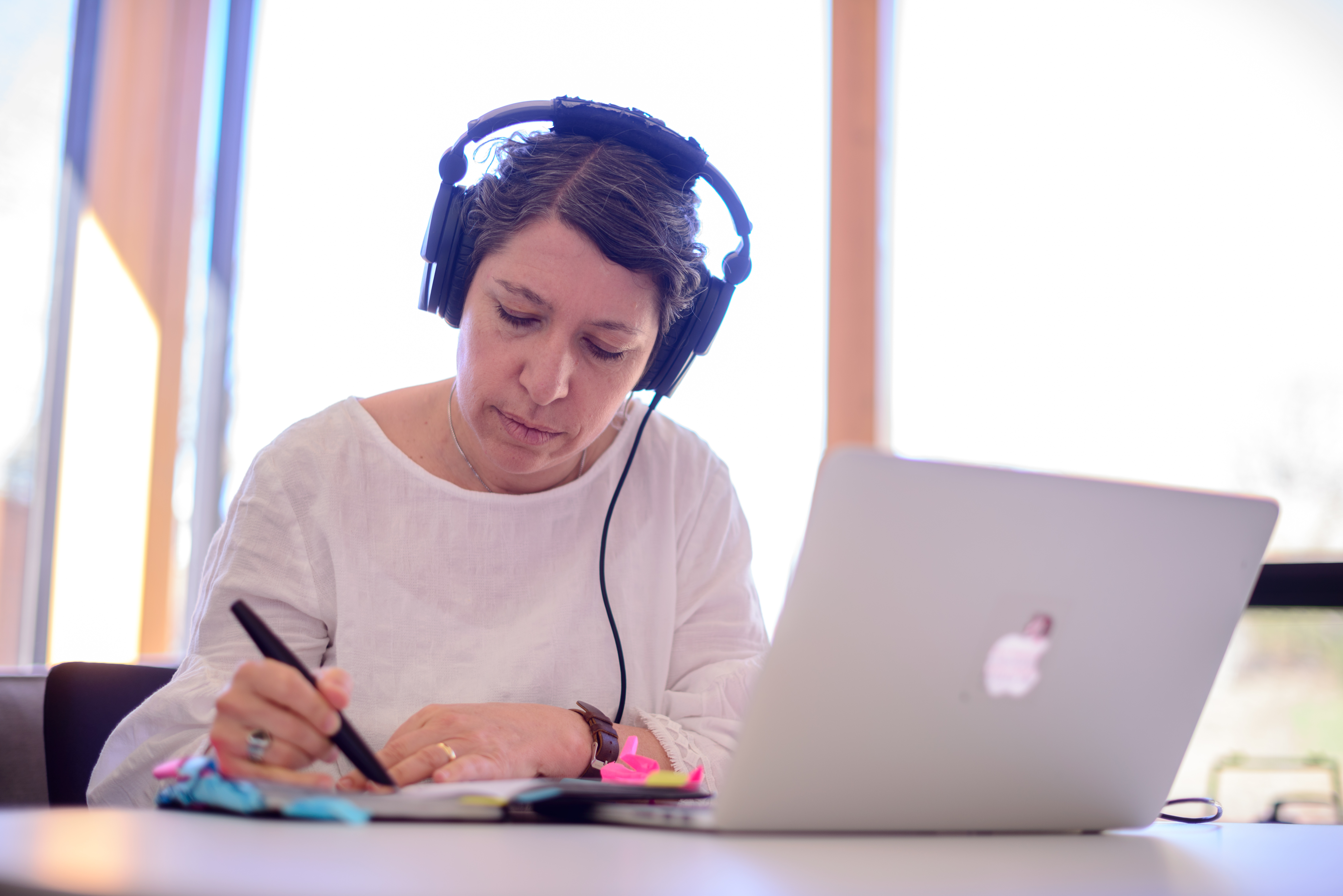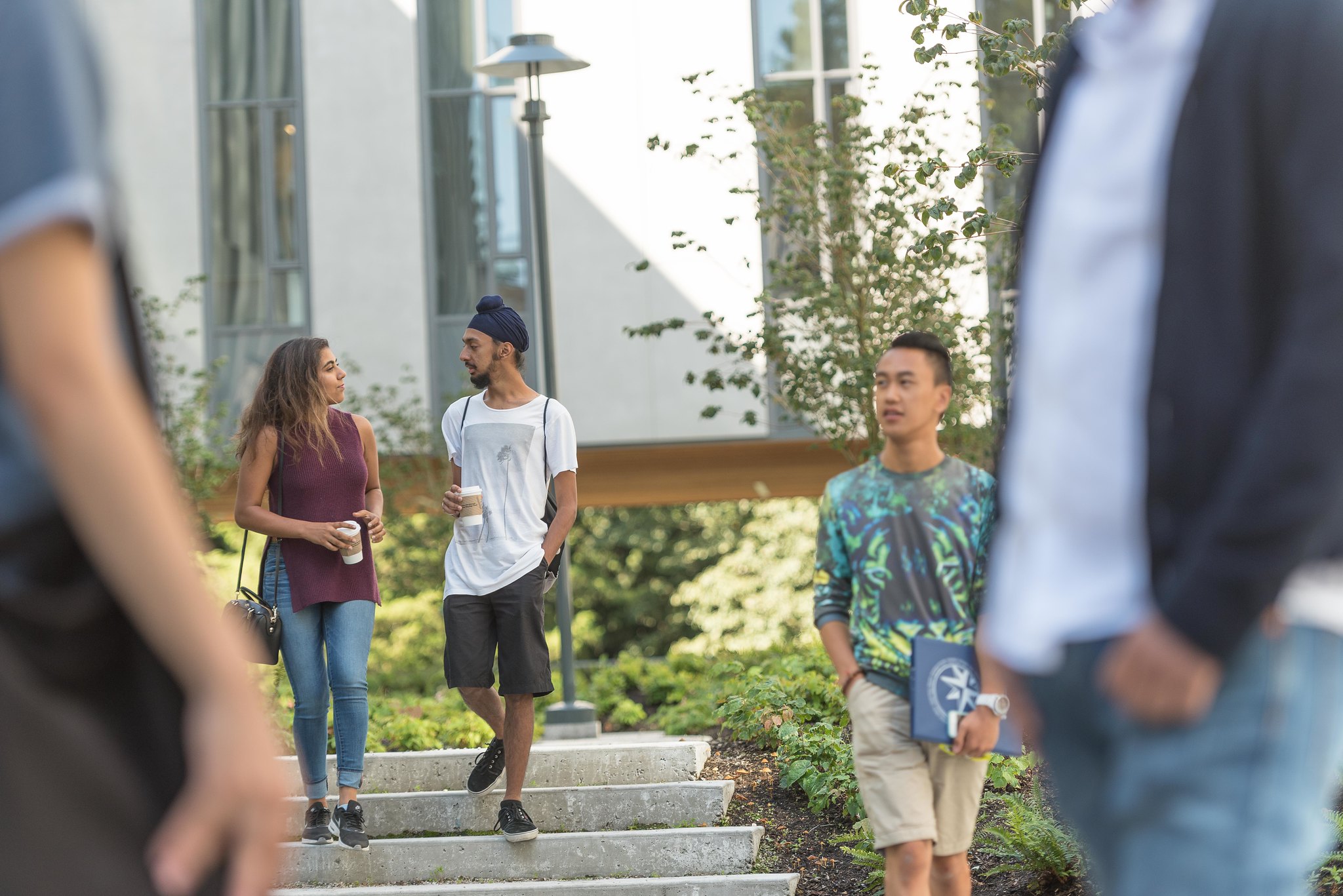

Nearly six months after COVID-19 closed campuses across Canada, the UBC community is heading into its first full semester online. For students, the transition from in-person instruction to online learning can seem daunting at first, but the good news is your professors can relate to and empathize with the anxieties that come along with this major change.
We reached out to three Arts profs — from the Social Justice Institute, the Chinese Language Program, and Philosophy — for their advice on what you can do to prepare for this semester and how you can succeed in learning online.
Hsiang-ning Sunnie Wang
Assistant Professor of Teaching, Chinese Applied Linguistics


What advice do you have for students who are new to online learning?
My advice here is particularly geared towards first-year students, who are probably going to have a harder time adjusting to university learning online and finding a community. It’s going to be crucial to get out of your comfort zone and really engage in your online classes, so that you can get to actually know other people and your instructors. When you return to campus later, you will realize how many friends you already have!
“Embrace new changes, connections, and collaborations. You will find your own place in this new UBC community!”
Also, don’t be afraid to ask questions, especially if you don’t know where to hand in an assignment or what you have to do for class. Taking the time to set your learning pace, learn to manage your time, and figure out learning strategies is also critical, especially because there’s no one there to hold you accountable! You have to take responsibility for your own learning now. This is a huge difference from your learning experience in high school.
Above all, support the people around you and don’t be afraid to ask for support when you need it. It costs nothing to send a quick “good job!” message to someone and it might brighten their day or even mean a new friendship for you. Believe in yourself. Embrace new changes, connections, and collaborations. You will find your own place in this new UBC community!
Kim Snowden
Assistant Professor of Teaching, Feminist Media Studies and Popular Culture


What advice do you have for students who are new to online learning?
Read instructions carefully and plan your time the best you can. If you have questions, ask your instructor or TA. Ask your instructor to set up a Q&A thread on Canvas where everyone can participate. Sometimes your classmates might respond faster than your prof — and you get to know people this way. Attend sessions where classmates will be present if you can. It’s not the same as meeting in person, but that contact is important.
“I think online learning can be a really great way for quieter students or students with different languages or sets of knowledges to engage as it gives them space to do so.”
It might seem easy to put off that lecture or those discussion questions until later if you are in a self-paced class, but be careful not to get too far behind — before you know it, everything will be due and you will feel overwhelmed with work. Reach out if you are struggling to manage your time or struggling to make sense of the course and material. Remember that your instructor might not be in the classroom every week, but they are still there.
We know that this isn’t what you planned or what you wanted, and we are doing are best to adapt our courses to make sure you get the best learning experiences possible. But, it’s okay to feel sad and it’s okay to feel frustrated — we are living through a pandemic, it’s normal to feel overwhelmed by this and you are not the only one. Reach out if you are struggling, let us know so we can figure out how best to support you.
The most important thing is about overwork and burnout. Being online all the time means that we tend to keep working when we are sick, when we are exhausted, when we are going through a crisis or trauma. It’s okay to take a break. It’s okay to say that you are too sick to check email or to watch that lecture. Your instructors will understand — we wouldn’t expect you to come to class if you have the flu so we don’t expect you to struggle through an online lecture just because you are at home in your pjs. Giving yourself time away from the screens and computers is vital to avoid burnout and to keep yourselves feeling healthy throughout the term.
Michael Griffin
Associate Professor, Department of Philosophy


What advice do you have for students who are new to online learning?
Take it easy on yourself! You’re already amazing for trying this totally new thing this year. Let’s try to be patient with ourselves, and remember we’re all in this together.
See if you can form some groups of supportive friends, inside or outside your courses — even if you’re doing totally different things, you can encourage each other, help each other feel accountable — just share what you’re going through.
“It’ll take some time to find out what works for you, so be patient with yourself.”
If your instructor has office hours (in some online form), do take advantage of them! Keep in touch, let them know if you’re running into challenges (many people probably share your challenges), or just explore how to get the most from your courses this year.
Extended screen time, sitting down, is pretty tough, at least for me. To encourage both focus and sanity, I’d encourage students to try methods for getting regular breaks from screen time — for example, if you’re able, getting up and going for a walk, trying different spots in your room, or doing some gentle indoor exercise for a minute, or taking five deep breaths. I find something like the Pomodoro method helpful: for instance, 25 minutes of work, 5 minutes break, 25 minutes of work… and a long break every 3-4 cycles.
Everyone is different. I know that’s kind of cliché, but I think it’s true! It’ll take some time to find out what works for you, so be patient with yourself.
Physical, low-tech note-taking is probably still going to be a bit better for capturing information, at least for some of us, than writing on a laptop or tablet — just like studies have suggested for in-class learning. If you’re comfortable and able with it, try working with pen(cil) and paper for your notes.
Don’t forget that UBC Counselling Services and your Advising office (like Arts Advising) have resources, including COVID-specific help, for this moment. They’re here to help, and we can take good advantage of their insight and understanding.
Take care of yourselves, and have a great term! Hope to see some of you online in September.
Your profs understand the changes you are going through and are ready to help you succeed, so keep their advice in mind as you navigate this new semester.


